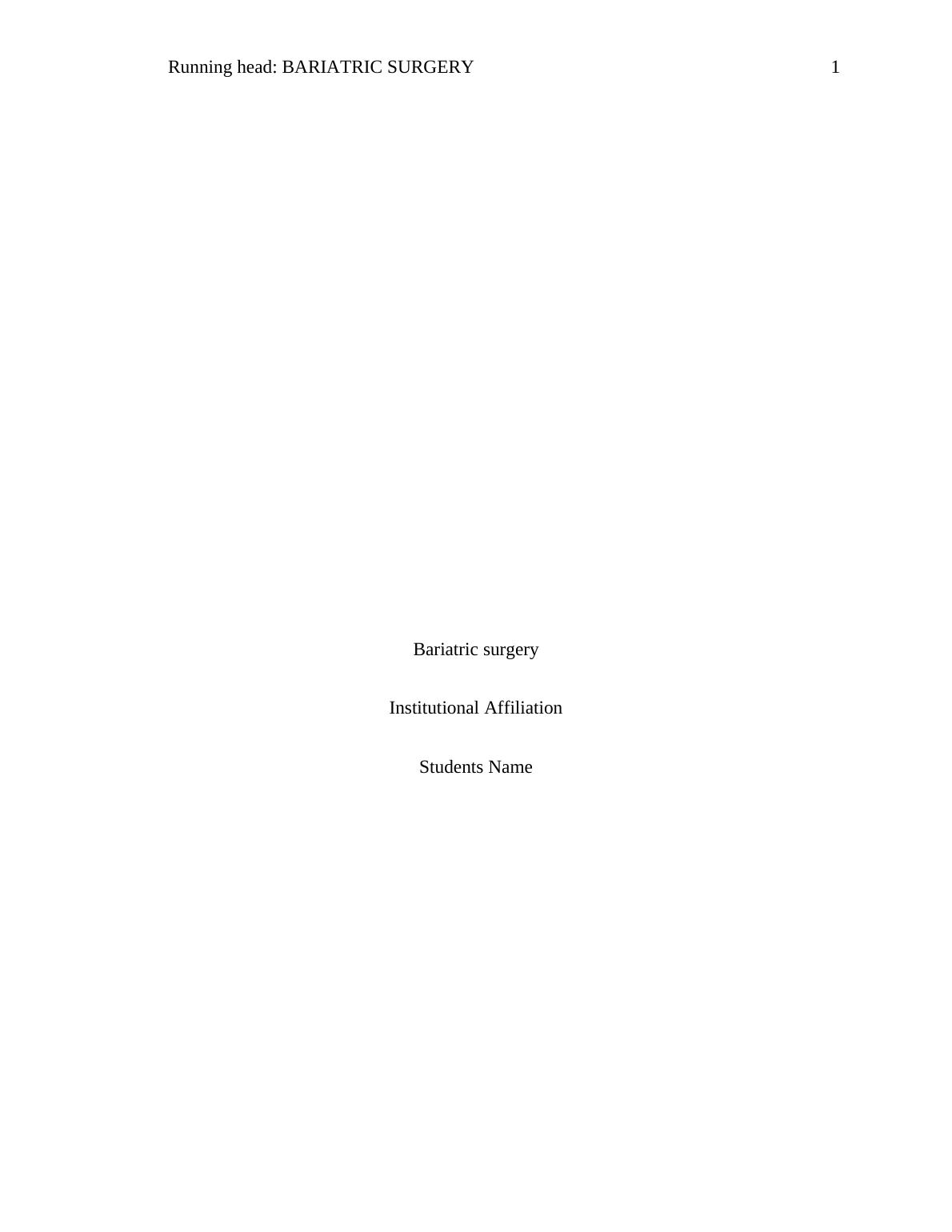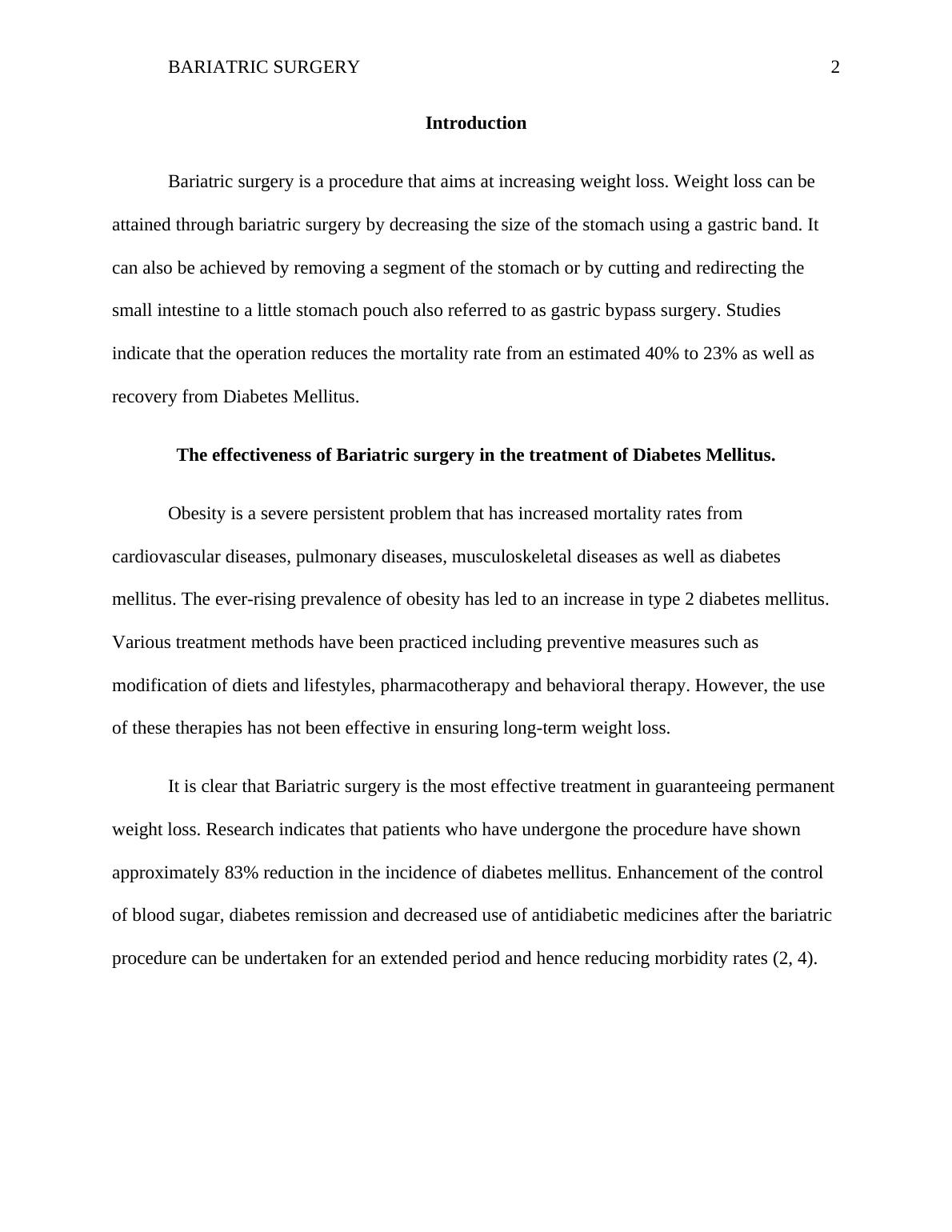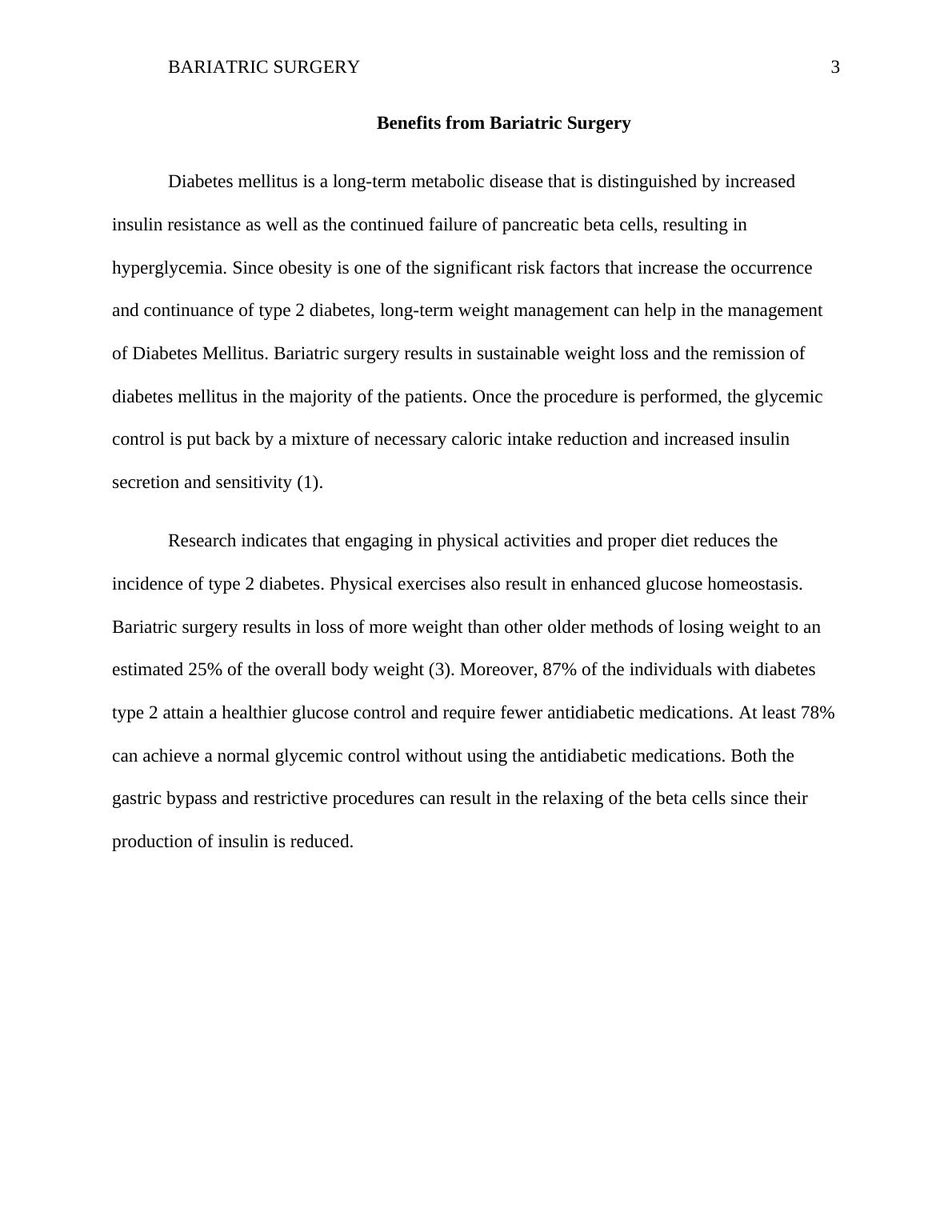Bariatric Surgery: Types, Benefits, and Effectiveness in Diabetes Mellitus Treatment
Added on 2023-06-04
10 Pages1483 Words145 Views
End of preview
Want to access all the pages? Upload your documents or become a member.
Bariatric Surgery: Types, Benefits, and Effectiveness in Diabetes Mellitus Treatment
|10
|1483
|244
Alcohol Effect on Bariatric Bypass Surgery
|12
|3477
|211
Assignment on Nursing Diabetes Patients
|8
|1603
|74
Laparoscopic Sleeve Gastrectomy for Obesity and Type 2 Diabetes: A Case Study of Kathleen Johnson
|7
|2189
|111
Diabetes Mellitus and Associated Pharmacological Treatment
|4
|558
|460
Bariatric Surgery: Effects and Risks
|7
|1532
|257



